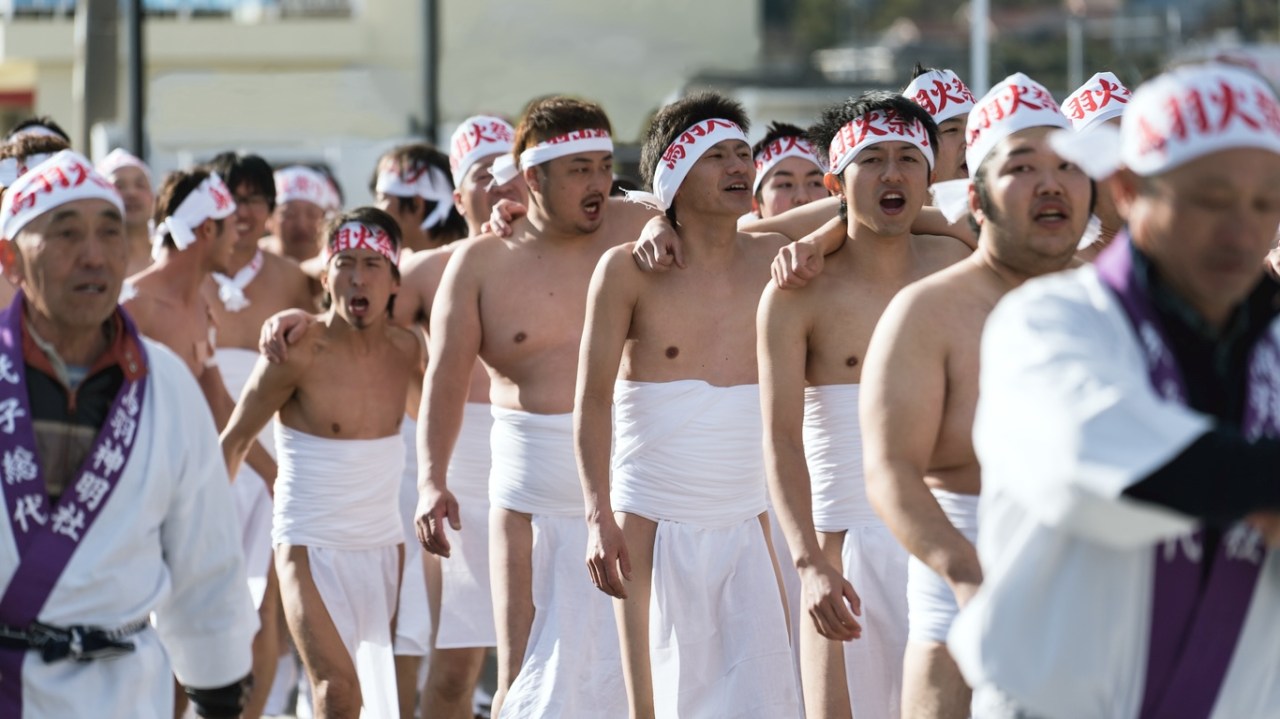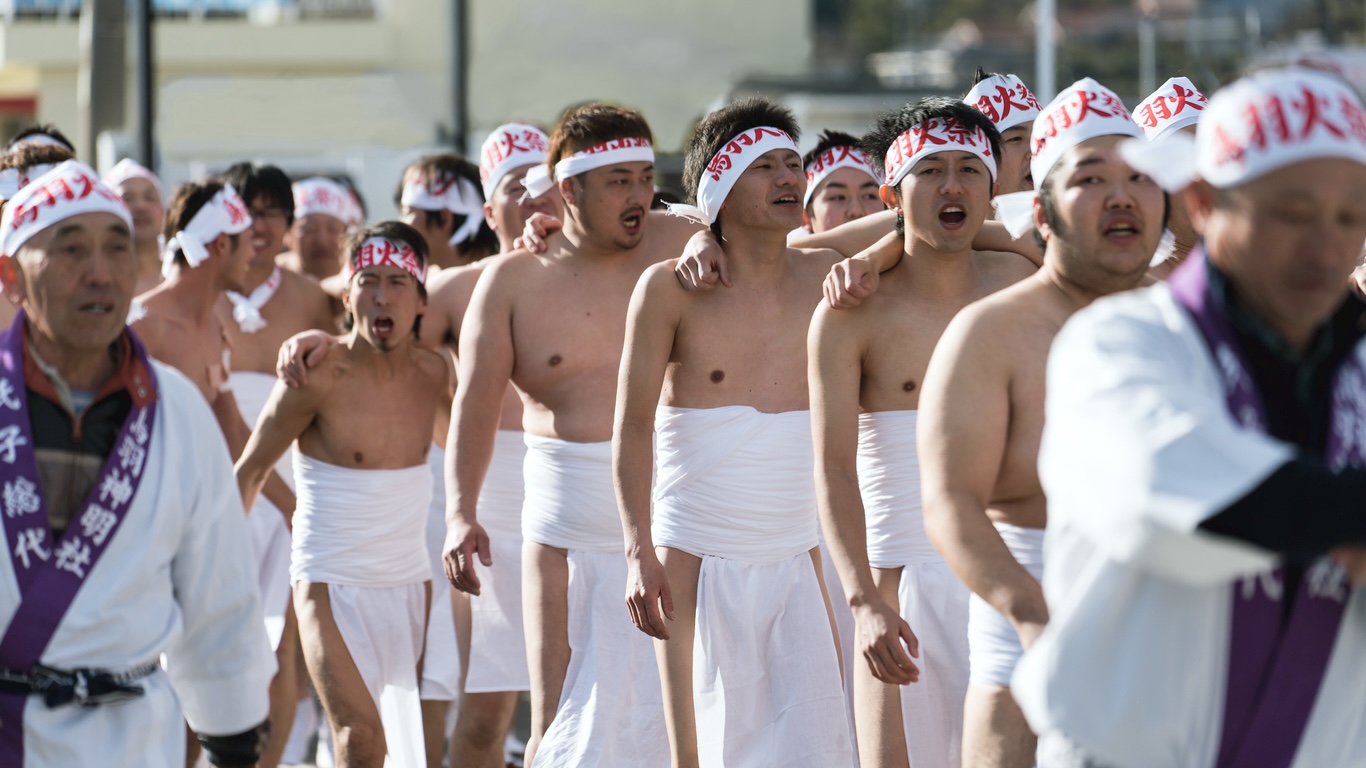For the first time in its 1,250 year history, Japan’s Naked Man Festival is to admit women to its sacred rites and rituals – well, one sacred ritual anyway. Later this month, a cohort of 40 women, clothed, will be allowed to participate in the naoizasa ritual where they will carry bamboo grass wrapped in cloth into the local shrine. While hardly a stunning breakthrough for women’s liberation, the decision is nonetheless revealing.
Sanitising rather bizarre local events is unlikely to make much difference
It is less a reflection of changing opinions than shifting demographics, with Japan’s vast underpopulated rural areas having to be more flexible with their ancient customs in order to keep them alive. Japan’s rural population has been declining by roughly 200,000 people a year due to urban drift and a disastrously low birth rate; the result is ghost towns and communities that are barely surviving with an average age of about 90. There is widespread property abandonment and you can acquire often substantial dwellings for next to nothing. It is estimated that 869 municipalities may vanish by 2040 while the population of the entire country is predicted to have fallen by a third by 2065.
Young people are leaving the countryside in droves and flooding into the cities where they live only for work, with neither the time, money, living space, nor energy to raise large families. And so as the cities swell and the rural towns dwindle, traditions are forgotten and the culture is gradually erased.
The best-selling author Nire Shuhei wrote about this process in his 2023 book Marginal Nation which depicts a Japan facing demographic catastrophe. He sees the rural communities as doomed while key workers such as doctors find it impossible to make a living servicing tiny populations. So spooked is the Japanese government that at one point it resorted to paying people to move out of the cities. It didn’t work.
Along with central government efforts, rural people are doing what they can to slow the decline, with tourism coordinators and attractions for every conceivable local quirk. Many prefectures have a cute mascot characters (yuru chara) with dedicated brand goods. An example is the threatened town of Kanna-michi in Gunma (fewer than 2,000 inhabitants) which has a dinosaur museum dedicated to the discovery of Japan’s first fossilised dinosaur footprints nearby. ‘Saurus-kun’, a dinosaur character, promotes the town. There is even a melody road (drive over it and a tune is produced) to tempt visitors.
Rebooting the local matsuri (festival) is a key part of this salvage exercise. Besides Naked Man, the Shiga Fire Festival has also included women for the first time in its 800 year history, while the Yaya Festival in Mie, where men jump naked into freezing water, will now mandate loin clothes or swimming trunks. Similarly, the Kanamara Matsuri (Festival of the Steel Penis) is distancing itself from unofficial phallic mascots. Thankfully, my favourite, the Akutai Verbal Abuse Festival (yes, really) remains unchanged. I think they told the reformers to get lost.
If this rebranding smacks of rather desperate marketing, that’s because it is. It reminds me of the Grizwalds driving across country in National Lampoon’s Vacation film and seeing a sign advertising the ‘second largest ball of twine in the world, only four short hours away’. But making the Japanese festival more inclusive an sanitising rather bizarre local events is unlikely to make much difference. In fact, knocking the rough edges off these quirky fixtures risks destroying that very uniqueness that makes the countryside appealing and which the reformers claim to cherish.
Even the Japanese would probably admit that some local festivals are an acquired taste. They can be quirky and weirdly charming but at worst are incomprehensible and boring. And however much they celebrate fertility, a few tweaks to the ancient customs are unlikely to persuade the few remaining youthful residents to stay in town and procreate.
This article is free to read
To unlock more articles, subscribe to get 3 months of unlimited access for just $5








Comments
Join the debate for just £1 a month
Be part of the conversation with other Spectator readers by getting your first three months for £3.
UNLOCK ACCESS Just £1 a monthAlready a subscriber? Log in